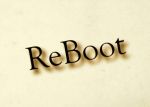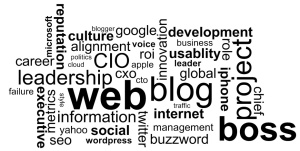 As I look for a new role that is suitable to my experience and background, I often get rejection letters. At first I would delete them but I decided to keep them and periodically review them. Not that I am angry over being rejected. Contrary, rejection letters just make me have thicker skin.
As I look for a new role that is suitable to my experience and background, I often get rejection letters. At first I would delete them but I decided to keep them and periodically review them. Not that I am angry over being rejected. Contrary, rejection letters just make me have thicker skin.
Getting a rejection letter is better then the black hole of no response.
Here are a few of my rejection letters. (Names have been deleted.)
You were impressive but not impressive enough—
Dear Arun Manansingh,
Thank you for taking the time to send your resume and cover letter for consideration for our position for Manager, IT at xxx. We received many applications and while your qualifications and experience are impressive, there were candidates who more closely matched our needs.
We appreciate your interest in the xxx. We will maintain your resume on file and suggest that you check our career site and apply for job postings that you are passionate about and for which you qualify.
We would also like to invite you to remain informed about the work that xxx is doing. The best ways to do that are on our website, or other social media detailed below for example, Facebook and Twitter.
Again, thank you for applying. We wish you all the best.
Again you were impressive but we want to continue looking —
Dear Arun,
Thank you for the interest you have expressed in employment with xxx IT for the position of Sr Director IT Service Management. Although your experience is impressive, our hiring team has decided to continue the search.
At this time, your resume will be retained for at least one year in our database. You will be contacted in the event our employment needs should change. We also encourage you to visit our website as new positions become available.
We appreciate your interest in our company and wish you success in your search.
We thought you were a match but now you are not—
Dear Arun,
Thank you for submitting your resume for our Chief Information Officer position, and for your interest in our firm.
Your qualifications have been reviewed, and although they are impressive, we do not feel that they are a match for our current opportunity.
We are sure your credentials and abilities will lead to other excellent opportunities, and we wish you every success in your career.
Don’t call us we will call you—
Hi Arun, Thank you for your interest in the VP, Technology & Operations role for xxx. We have received your information and if there is interest in moving forward with your candidacy we will be reaching out to you in the next few weeks. Thank you for your patience in our reply, as we had many applications for this impactful opening on our team.
You didn’t get the job. Here is who did—
Hi ARUN,
Thank you for your application for the position of Chief Information Officer for the xxx. Interviews for the position were held in early March.
Xxx officials have appointed Ms. xxx as their next Chief Information Officer. Ms. xxx has most recently served as a Manager of IT Infrastructure and Operations. Prior to that, she worked in the IT field as a Director for more than 12 years. Ms. xxx has a Master’s degree in Communication System Strategy & Management and a Bachelor of Science degree in Mathematics.
Although you were not selected for this position, the xxx and GovHR xxx want to thank you for your interest and effort in competing for this position. We extend our best wishes for continued success in your professional endeavors.
Please feel free to stay in touch with our office regarding professional opportunities in the future.
You were not qualified—
Arun,
Thank you for your application for the CTO/SVP, Architecture, Engineering & Technology search we are doing at xxx. After reviewing your background, we have concluded that there are other candidates better qualified for this role. That said, thank you for your time in contacting us.
With regards,
There were too many qualified CIOs —
Arun:
Thank you for your interest and for taking the time to speak with us about the CIO role at xxx. We were impressed with your experience, but you were one of many qualified candidates whom we considered for this position. Therefore, we will not be proceeding with your candidacy for this role at this time.
We wish you the best of luck in your future career, and thank you again for considering an opportunity with xxx.
Not holding my breadth —
Dear Arun,
We received your application for employment with xxx for the position below.
Job Title: Chief Information Officer
Department: Finance and Administration
Thank you for your interest in our University. The screening and selection
process is currently underway and will continue until a candidate is chosen. If
a decision is made to pursue your candidacy, you will be contacted by the hiring
manager.
Sincerely,
Human Resources
The role has been frozen for now—
Dear Arun,
Thank you for your application for the position as CIO, xxx Group.
After careful consideration and with respect for current business priorities, we have decided to continue our interim IT Management solution throughout Q4 2013. Consequently the recruitment process for the CIO position has been postponed. We acknowledge and respect the energy you have put into your candidacy and apologize for any inconvenience in this regard. As the recruitment process may continue in a few months’ time, we kindly ask you to let us know, if you wish to sustain your candidacy for the CIO position. If so, please reply to this email no later than October 1, 2013.
Once again we apologize for any inconvenience this may have caused.
Best regards,
Human Resources, Zacco Group



